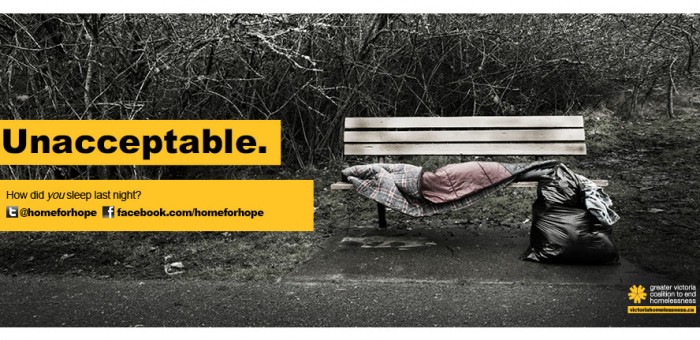Poverty and Homelessness
Minimum Wage Increases need Review Mechanism
Media Statement: March 12th, 2015
Andrew Weaver: Minimum Wage Increases need Review Mechanism
For Immediate Release
Victoria, B.C. – The process for determining increases to the minimum wage needs to be de-politicized according to Andrew Weaver, MLA for Oak Bay – Gordon head and Deputy Leader of the B.C. Green Party.
His comments follow today’s political announcement of a $0.20 increase to the minimum wage. While this announcement included a process to increase minimum wage annually, there was insufficient consultation and an apparent lack of expert review to determine today’s increase and the baseline for future increases.
“This is a political move that doesn’t actually solve the problem. Annual increases tied to inflation will only ensure minimum wage doesn’t fall further behind,” said Andrew Weaver. “This government hasn’t done enough to ask whether it still has some catching up to do before indexing minimum wage to the B.C. Consumer Price Index.”
Today’s announcement contained little information about how this new rate and revision process was developed. There was no indication that a consultation process with experts and with those who are affected by potential increases took place.
“What is needed is a full, independent examination of British Columbia’s minimum wage policy, including advice about how best to determine future wage increases, and to explore what the baseline minimum wage should be,” said Andrew Weaver. “We need to move the decisions about increases into a non-politicized environment so they can be about people, not politics.”
Media Contact
Mat Wright – Press Secretary Andrew Weaver MLA
1 250 216 3382
mat.wright@leg.bc.ca
Disappointing Answers from Government on Income Assistance Rates
Today in Estimates I had the opportunity to ask the Minister of Social Development and Social Innovation two questions concerning poverty, homelessness and affordability. I ended up not asking the third question. Earlier in the day government announced changes to the support for single parents on income or disability assistance; yesterday government also announced changes to the support for families with children who receive income assistance.
My third question would have been:
“In the Premier’s mandate letter to the Ministry of Social Development and Social Innovation on June 10, 2014, the Ministry was mandated to work with the Ministry of Children and Family Development to provide options to Cabinet that will ensure barriers are removed for single mothers looking to develop their skills to secure long-term employment. Given that lone-mother families are at a much higher risk of living in poverty than lone-father families and couple families, this mandate is important for addressing BC’s growing child poverty rate. What has the Ministry done over the last year to ensure that this mandate is met and what steps does this budget take to improve upon the work that is already being done?”
Based on the disappointing answers I received on my first two questions, I expected that I would simply be told about the two recent announcements government made.
Below I reproduce the exchange between the Minister and me.
Question
On plans to increase income assistance rates
A. Weaver: I recognize that a version of this question may have been asked. I’ve just got three questions. I am trying to put together the answers so that I can use them in the further work that we’re doing in my riding on the issue of poverty.
The first question is with respect to income assistance rates in B.C. which, as the minister will know, have not increased since 2007, with maximum monthly shelter allowance for a single individual on income assistance set at $375.
As of April 2013 the average monthly rent paid by someone on income assistance in greater Victoria was $501. These monthly rent rates are consistent throughout the province, if not even more in some jurisdictions.
My question is this. Does the minister have plans to increase income assistance and shelter allowance rates in order to keep up with inflation and market pricing? If not, why not?
Answer
Hon. Michelle Stilwell: To the member: I expected you to provide questions to me ahead of time like you give everybody else, but thank you for your question.
We acknowledge that it is very challenging for people who are living on income assistance, and we have definitely made the commitment to raise the rates when the fiscal situation allows. But most importantly, we continue to refine the policies that we have within my ministry and within other ministries, as we saw today with the announcement we made for single parents. We’ve also made the announcement a few months ago about the annualized earnings exemptions for persons with a disability, the child support exemptions, the increase in exemptions that we saw yesterday. There are ways that we can refine the policies in the meantime while we continue to try and make life better for those individuals who rely on us most.
Question
On plans to increase support for brain injury survivors
A. Weaver: I do apologize for not providing questions in advance. I normally do that. I’m just not that organized now because there are so many bills that are coming before us so quickly. They’re coming up so fast that I’m unable to actually stay more than, like, half a day ahead of this.
Here’s my second surprise question. Studies have found that 52 percent of people on the streets have brain injuries. Approximately 74 percent of those individuals had their brain injury before becoming homeless. Given these findings and the fact that responsibility for social assistance programs falls under the mandate of the Ministry of Social Development and Social Innovation, has the ministry considered working with the Ministry of Health to address the need for improved supports and services for brain injury survivors?
Answer
Hon. Michelle Stilwell: Yes, we do actively work with and in partnership with the Ministry of Health but also with health authorities, other non-profits, B.C. Housing, multiple partnerships around. When it comes to the Ministry of Health, we use our ACT Teams with the outreach to ensure that the homeless, including those who are brain-injured, are actively brought into the income or disability system.
Most likely, a person with a brain injury would qualify for PWD, and we would have expedited services for access to the Medical Service Plan and the PharmaCare plan as well. I certainly recognize and acknowledge the concern that you’ve brought forward.
Bill 6 is Good for BC: Regulation of the Debt Settlement Industry
In January I sent a letter to Minister Anton seeking clarification as to whether or not legislation was going to be introduced to regulate the debt settlement industry. Similar legislation exists in other provinces (e.g. Ontario and Nova Scotia as well as in a number of US States). I received her response in February.
In her response, Minister Anton stated:
“Although I am unable to provide specific details regarding the development or timing of legislation at this time, I can assure you that government is committed to enhancing consumer protections against deceptive practices. To this end, ministry staff continue to work through policy issues that are necessary to regulate debt settlement agencies“
With the introduction of Bill 6, Justice Statutes Amendment Act 2015, the debt settlement industry in BC will now be regulated. This is good news for British Columbians struggling to get themselves out of debt. Today, I spoke strongly in favour or this bill at second reading. Below is the text of my speech.
Text of my Speech
A. Weaver: I rise to congratulate the government on introducing at least the aspect of this bill that concerned me. That’s with respect to the debt settlement. As the minister will recognize, I contacted her about this earlier this year.
As we know, debt settlement companies typically offer to negotiate on behalf of a consumer lump sum settlements with creditors for amounts significantly less than the consumer’s outstanding debt. Consumers are often required to pay excessive, largely non-refundable fees up front and are encouraged to stop paying their debts and instead save up for a lump sum settlement. This differs from traditional debt-pooling services, which set up reduced-interest repayment plans and assist consumers with eventually paying off their full debts.
Many people are unable to save enough for the lump sum settlement amount and subsequently drop out of the program, losing any money they have already paid to the debt settlement company. There’s no guarantee a creditor will accept the lump sum settlement, although this risk is often not communicated to consumers. This can negatively affect credit scores and further accumulate debt as late fees, missed payments and penalties build up.
The proposed changes, developed with the advice from a debt collection industry advisory group and in consultation with Consumer Protection B.C. would help prevent the negative practices and also modernize outdated provisions to ensure B.C.’s debt collection laws both reflect the present day collection and credit industry and align with other Canadian jurisdictions.
On January 5 of this year, after a rather large number of e-mails I received from people in the greater Victoria district, I contacted the minister and pointed out that in July of 2012 CTV News reported that the Minister of Justice at the time said: “In order to better protect consumers and families living in poverty, the B.C. government will provide legislative changes to regulate businesses that provide debt consolidation services and regulate advance fees paid.”
As I pointed out in the letter, since that time there had been little information from government about when we could expect to see such legislation. I pointed out in that letter on January 5 that debt management companies prey upon some of the most vulnerable British Columbians. Rather than providing a solution to an individual’s debt issue, these companies seek to profit off the situation.
A number of provinces, as I pointed out and as was mentioned by other members here — including Ontario, Alberta, Nova Scotia, Quebec and Prince Edward Island, which I hadn’t realized until a member brought it up recently — have passed similar legislation to end these predative practices within their jurisdictions. At the time I pointed out that I believed it was past time for British Columbia to pass our own regulations in this regard. I asked the minister if she could reply to me with an update as to where we were heading in this direction.
I was delighted to receive a letter from the minister on February 12, which I communicated back to my constituents and others, pointing out that debt collection in British Columbia is regulated under the Business Practices and Consumer Protection Act, pointing out that the legislation was designed to protect consumers by prohibiting deceptive practices and requiring debt industry professionals to be licensed.
At that time, the minister pointed out:
“The emergence of new types of debt repayment professionals has resulted in a need to ensure that they are also bound by the act’s rules. Although I” — being the minister — “am able to provide specific details regarding the development or timing of legislation at this time, I can assure you” — that is, me — “that government is committed to enhancing consumer protections against deceptive practices. To this end, ministry staff continue to work through the policy issues that are necessary to regulate debt settlement industries.”
It is with great pleasure that I stand to see that, in fact, this has entered into Bill 6, the Justice Statutes Amendment Act. I look forward to exploring some of the details further as we get into committee stage. In particular, I have some questions, obviously — and I’m sure other members will too — with respect to 127(3), which talks about a debt repayment: “A debt repayment…must not charge fees or disbursements in excess of the prescribed amount.” We’ll be questioning, obviously, what that prescribed amount may or may not be and what the minister has in mind in terms of subsequent regulations.
I’m also pleased to see that the bill actually does include this entirely new category called the debt repayment agent. It’s very reassuring to see regulations and guidelines put in place as to what a debt repayment agent may or may not do. So with that, I’m very pleased to stand in support of Bill 6, at least the two components that I’ve spent some time working on — the Business Practices and Consumer Protection Act subcomponent as well as Collection Agents and Debt Repayment Agents.
With that, hon. Speaker, I’ll thank you and look forward to committee stage of this bill.
Celebrating the Contributions of The Mustard Seed
Today I rose in the Legislature to recognize the Mustard Seed, a non-profit organization that provides crucial services to address food insecurity in the Capital Regional District, mainly to children and families. Approximately 20,000 people (over 6% of the population) are moderately to severely food insecure. Since 2010, the number of individuals assisted by the Mustard Seed has increased from 4,000 to 7,000 per month.
The Mustard Seed has been exploring ways to move away from a traditional food banking model, focused primarily on processed, non-perishable food items, to one that provides fresh, healthy food, thereby improving health outcomes for food insecure people.
Their vision is to create a three-tiered food access system, subsidized through social enterprise, with emergency, preventative and retail components – with the latter two components supporting operational costs of the emergency programs. A proposed processing and community kitchen component would enhance food skills literacy and provide employment and skills training opportunities.
The Mustard Seed’s vision aligns with the Ministry of Health’s priorities for short-term food relief and longer term food security.
While currently there is insufficient storage space available for both non-profits and food retailers to manage the necessary volume to meet the food security needs of our communities, the Mustard Seed is working hard to develop solutions.
With the support of the community and government, the Mustard Seed hopes to realize their vision of a food secure region with a transformed, sustainable, non-profit/social enterprise model.
I want to thank them for their more than 40 years of service in our community and I commend then on their vision.
Moving Forward with MSP Premium Reforms
On Monday, February 23 2015, I tabled the BC Green Party petition of 6,662 British Columbians calling on the government to replace the regressive MSP premium poll tax with a more fair and equitable option to fund health care services in British Columbia.
Today in the legislature I was up during Question Period. I used this opportunity to question government on the possibility of empowering the Select Standing Committee on Health to examine innovative, progressive ways of revising how MSP premiums are charged in British Columbia?
As you will see from the exchange below, I was pleasantly surprised by the answer that I received. My response to the Minister’s use of a quote from Tommy Douglas is that Quebec and Ontario bring Health Care Premiums into their progressive income tax system as a line item that shows people what they are paying.
QUESTION
A. Weaver: In early January the good health committee at the Monterey seniors’ centre invited me to a conversation on health care. Collectively, these seniors were profoundly concerned about the impact that our regressive approach of charging flat-rate MSP premiums was having on their ability to make ends meet. And this is in the rather affluent riding of Oak Bay–Gordon Head.
Since raising this issue last month, I have heard from thousands of British Columbians who agree with me that it’s time to replace MSP premiums with a fair and equitable option. Fortunately, just yesterday the Government House Leader activated the Select Standing Committee on Health, a committee that could be empowered to examine this issue.
My question to the Minister of Finance is this: will he empower the Select Standing Committee on Health to examine innovative, progressive ways of revising how MSP premiums are charged in British Columbia?
RESPONSE
Hon. M. de Jong: Thanks to the member for the question. There will, through the estimates process, be an opportunity to discuss the question of the amount we collect and some of the relief that exists for almost a million British Columbians from paying full premiums. The member’s question is more specific, and that is whether or not this is a legitimate or appropriate topic for discussion by the committee.
I took the liberty of quickly checking the terms of reference. I think the power exists now. I think the committee, charged as it is to examine the projected impact of the provincial health care system on demographic trends to the year 2036 on a sustainable health care system for British Columbians…. Similarly, the motion that was before the House just a few days ago asked the committee to “outline potential alternative strategies to mitigate the impact of the significant cost drivers” identified in the original report and “consider health capital funding options.”
I think that’s probably sufficiently broad for members of the committee, and those that they might invite in, to have the kind of conversation that the member is alluding to, and it will be interesting to see what results from that conversation.
SUPPLEMENTARY QUESTION
A. Weaver: I must admit I was not expecting that answer. I am pleasantly surprised, and I’m thrilled that the committee will, I hope, seek and explore means and ways of funding the MSP premium more progressively.
The reason why I’m asking this is that the time is right. The Maximus contract was renewed in 2013. I recognize there was a five-year renewable clause in it. Now is the time to work with Maximus to find new ways of not only saving government money — because this is about efficiency as much as it is about delivering services to people who can afford it, with means and ways that allow them to have these services affordably — but it’s about making it fair. It’s about bringing the revenue generation into the income tax system.
So my question to the minister is this. Will the minister consider, as every other province in the country does, bringing in our funding to MSP premiums through the income tax system, whether it be as a line item or as part of general revenues, to avoid the unnecessary bureaucracy associated with chasing after people who have recently lost their jobs and are being charged premiums based on last year’s income tax rate, chasing people who didn’t know they actually had to pay premiums because they are living abroad and so on? Will the minister consider this approach of using our income tax system for actually raising these premiums?
RESPONSE
Hon. M. de Jong: Two things come to mind. I don’t want to prejudge or presuppose what the committee might present in terms of thoughts or recommendations on this. I confess to a certain bias, and that runs counter to the suggestion that the member has offered about eliminating a very specific charge, tax levy, in favour of general taxation provisions.
If the committee is going to have the conversation…. I ran across this in anticipation of some of the conversations, and I wonder if I can share it with the House. It’s from a former Member of Parliament from B.C., an NDP Member of Parliament, who said this:
“I want to say that I think there is value in having every family and every individual make some individual contribution. I think it has psychological value. I think it keeps the public aware of the cost and gives the people a sense of personal responsibility.
I would say to members of this House that even if we could finance the plan without a per capita tax, I personally would strongly advise against it. I would like it to be a nominal tax, but I think there is psychological value in people paying something for their cards.“
That wasn’t just any Member of Parliament. Before he was a Member of Parliament he was the Premier of Saskatchewan. That was Tommy Douglas in 1961, addressing a special session that created.
I hope the committee will be mindful of all of these ideas as it considers these matters.
Following Question Period, we issued a media release on the exchange. It is reproduced below.
Media Release
Media Statement: February 26, 2015
Health Committee Empowered to Examine MSP Premium Reform
For Immediate Release
Victoria B.C. – Today, in response to a question from Andrew Weaver, MLA for Oak Bay-Gordon Head and Deputy Leader of the B.C. Green Party, the Government House Leader and Minister of Finance agreed that the Select Standing Committee on Health would have the power to examine progressive ways of financing the Medical Services Plan and report on its findings.
“There are clear, progressive alternatives to MSP premiums that would be efficient, cost effective and affordable,” said Andrew Weaver. “I was pleasantly surprised that the Minister agreed that part of the Committees mandate could be to examine these alternatives.”
Currently, British Columbia is the only province in Canada charging a separate, flat-rate fee for medical premiums. The MSP rate is rising under the 2015 Budget by 4% – from $72 to $75 per month for individuals and from $130.50 to $136 for families. The same fee applies to anyone, whether they earn $30,000 or $3,000,000 in a year.
In contrast, both Ontario and Quebec made medical premiums a line item in their personal income tax return. By doing so, they maintained an essential revenue source for health care while reducing the burden on low and fixed income individuals.
MSP premiums are forecast to bring in nearly $2.3 billion in the 2014/15 fiscal year approaching the amount of revenue that is accrued from corporate income taxes. Reforming how this revenue is collected by, for instance, making MSP a line-item in the annual personal income tax return, would turn this regressive tax into one that is fairly applied based on income, while saving costs associated with administration and non-payment collection.
“I understand that the government has concerns about how changes to this tax would affect their financial objectives,” said Andrew Weaver. “Empowering one of our standing committees allows these objectives to be preserved, while also exploring how MSP Premiums can be made to be more affordable for British Columbians. I look forward to presenting practical alternatives to this committee and working with them to bring reform to the way MSP Premiums are charged in our Province.”
-30-
Media Contact
Mat Wright – Press Secretary, Andrew Weaver MLA
Mat.Wright@leg.bc.ca
Cell: 1 250 216 3382








